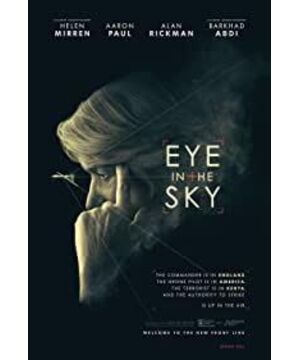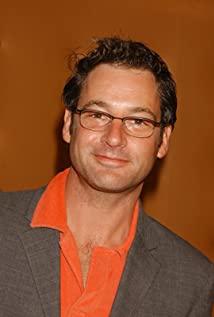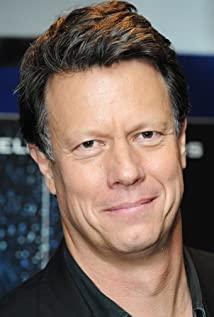In the age of drones and long-range warfare, warfare looks very different than it used to be. Cabinet rooms in the UK, combat headquarters, UAV operations rooms in the US, intelligence centres responsible for facial recognition, special forces headquarters in Kenya, mobile reconnaissance vehicles operating cameras, and intelligence officers deep into tiger dens are scattered all over the world. The collaborators all over the place are facing the screen and know everything about the terrorists, but the terrorists are completely ignorant. The war has become so quiet and detached, and the characteristics of the new era of transnational cooperative operations are very well reflected.
The overwhelming advantages in technology and strength have not made the war on terror easy. Because terrorists have different advantages: they have no political, public opinion, legal, etc. constraints, they can kill indiscriminately, they can ignore the life and death of their own people, and they can use any illegal channels to obtain funds and equipment. This is an asymmetrical war, but not a one-sided war.
This war has a variety of topics to discuss. The film does not try to be too ambitious to be all-encompassing, but revolves around a decision-making problem: facing terrorists who are armed with suicide bombers, a missile can stop their killing. , but will implicate an innocent little girl, and focus on a topic very neatly: how to fight against terrorists who kill indiscriminately, how to deal with the collateral damage to innocent civilians in its own actions.
What a neat way? The opening of the film explains several scenes, such as Nairobi in Kenya, London in the United Kingdom, and the Nevada Air Force Base in the United States, which seems to be no different from the popular Hollywood blockbuster in recent years, where the locations of various countries are piled up to create a "big picture". But as the plot deepens, you will find that these scenes are not the objects of sightseeing tours, but an indispensable part throughout the whole film. Except for the exterior scene around the house in Kenya, all the other scenes are very fixed indoors, trying to avoid the complicated background pictures that distract the audience.
Although there are many characters, but due to the proper casting, these good actors can set up the characters very clearly and neatly without much ink and without confusion. The first is the family of a little Kenyan girl. Although they are obviously not handsome and beautiful, the simple happiness of the father secretly letting his daughter read and the little girl playing hula hoops in the sun makes it hard for the audience not to feel their happiness. beautiful.
The soldiers played by two old artists, Helen Mirren and Alan Rickman, are calm and calm. Although they insist on attacking, they are not portrayed as cold-blooded war machines, as Alan Rickman in the end credits Confession: "Never tell a soldier that he does not understand the cost of war".
The drone operator who directly executes the killing order, although not the decision maker, is facing the most direct psychological contradiction. It is really suitable for Jesse Pinkman, the tangled emperor, to perform.
And the fate of the innocent little girl is ultimately in the hands of politicians such as the foreign secretary sitting on the toilet, the defense secretary who is indecisive, the US secretary of state who plays ping pong in China, and the justice secretary who speaks loudly. It is not the fate of the little girl itself, but various political and legal entanglements.
Going back to the core contradiction of the film, sacrificing an innocent person to save potentially dozens of lives, to do or not to do? This seems like a very simple math problem. Also because of this simple appearance, some critics angrily denounced the film as "the Virgin of the White Left" and "the benevolence of a woman". But what if the few sacrificed were your family and friends, or even yourself? Life is priceless. No one else has the power to decide which is more valuable, one infinity or dozens of infinity. Perhaps the only one who has this power is God. Ironically, the high-altitude view of the drone, the decision-making and execution from thousands of miles away, is just like the perspective of God, and it also symbolizes the fact that mortals are playing God, deciding the facts and problems of life and death for others .
This conundrum is not only a contrast between a visible little girl and dozens of unseen lives, but many other details of the film reflect similar contradictions, while giving the audience room to extend their imagination and thinking. For example, when everyone is paying attention to this little girl for various motives, isn't the life of the intelligence officer who went into the tiger's den and operated the insect camera for her less valuable?
The focus of the film is a little girl, and the general, one of the decision makers, also has a daughter who is not on the scene. The general is troubled by choosing a gift for her. The fate of these two little girls is so different, whose responsibility is it? The fact that he has a daughter also reinforces the general's confession at the end of the film, "Never tell a soldier that he doesn't understand the price of war", and also quietly brings up a corner of his complicated heart beneath his seemingly ruthless exterior.
The innocent little girl was seriously injured by the bomb, but it was the local warlord who sympathized with the terrorists who helped to send it to the hospital. It seems that the good and evil on both sides of the war are not so black and white. The little girl's father is very sad. In addition to sadness, is there any hatred in his heart? Will he fall on the other side because of this? How many terrorists are born out of this?
The film thus ends with a contrast between a father crying with his daughter in his arms in the hot Kenyan sun, and a female colonel driving home silently in the bleak rain in England. Leaving only the details of the extended thinking space, this is called neat; and there is no inclination or sensationalism to these problems, this is called calm.
WeChat public account: feidududu watching movies (feidudumovie)
View more about Eye in the Sky reviews











